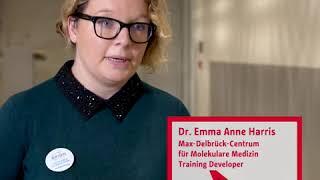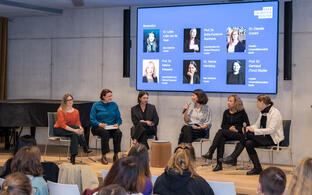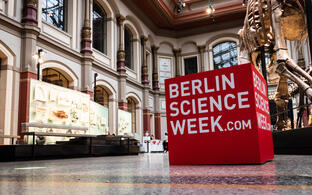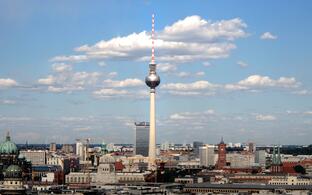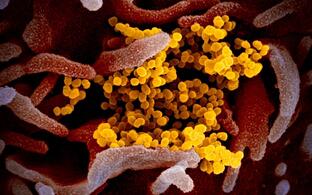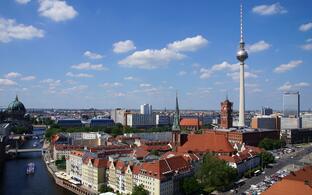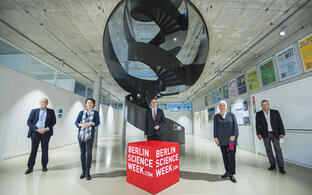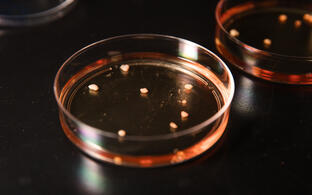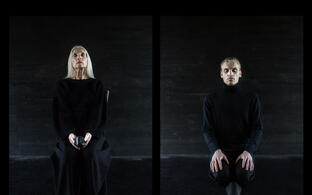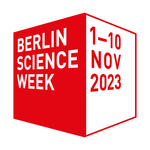
Berlin Science Week
Our program at the science festival 1 - 10 November, 2023
Program
- Berlin PostDoc Day
- November 02 - 03
The Berlin PostDoc Day 2023 (#PDD23) is an annual event organized by a team of Berlin-based PostDocs from different institutions (MDC, FMP, FHI, Charité, and BAM). It is open to all PostDocs and last-year PhD students working on all disciplines in the Berlin area and will take place at the Humboldt Graduate School, Luisenstraße 56, 10117 Berlin.
Please find more details on the program and registration here: https://www.mdc-berlin.de/postdoc-day
- Human virtuosity and AI – booster for musical creativity?
- November 03 | Helmholtz Information & Data Science Academy – HIDA
Time: 6:15 to 7:30 p.m.
Venue: Berlin Science Week CAMPUS im Museum für Naturkunde | Invalidenstraße 43 | 10115 Berlin | Raum "Birds"
Speaker: Uwe Ohler (Max Delbrück Center), Matthias Strobel, Jennifer Haase, Amirpasha Mobini Tehrani
Language: English
On-Site: Admission is free.
Digital: Shortly before the event begins, the stream will be made available on this site.
How artificial intelligence will influence creative artistry in the music ecosystem
Research and technological developments in recent times have led to new tools and services that promise to enhance the creativity of artists. Especially the broad variety of AI-driven software which is available for almost every step along the creative workflow of a musician is supposed to democratise access to music-making even further than it is already.
How will this impact human virtuosity, sound, culture, and music in general? How can we avoid biases in AI systems? Will we soon be swamped with music that all sounds similar or will AI and other emerging technologies open up new ways for musical expression and create new genres and eventually sub-cultures? Do we need more collaborations between researchers artists and developers in order to shape the creative music ecosystem of the future?
Let’s discuss!
Public discussion via livestream and on site at the campus.
Information about the physical accessibility of the Museum für Naturkunde can be found here. The event is taking place in the Birds Room. See ‚highlights of taxidermy‘ for the exact location on the map.
- Tracking the viruses in and around us
- November 04
Time: 4:30 – 5:45 pm
Venue: Berlin Science Week Campus at Naturkundemuseum Berlin, room „Deep Dive Forum“
Speakers: Markus Landthaler | Emanuel Wyler
Language: German
How molecular biologists are using mini-brains and high-throughput methods to study the viruses in our bodies and the biodiversity in wastewater.
Viruses are constantly on the move. Not only humans infect each other with them, viruses circulate in all animal species - from ants to elephants. They can be found everywhere in the environment, even bacteria are attacked by viruses. Thanks to the latest technologies, we can now understand and combat viruses much better. The progress is tremendous. Markus Landthaler and Emanuel Wyler from the Max Delbrück Center will first present how they use high-throughput sequencing to observe viruses in wastewater. After all, wastewater is not just smelly and murky, but a treasure trove of information about microbes! The second part of their presentation will talk about herpes simplex viruses. They "live" inside us all the time, and in some people, they can cause recurrent cold sores. While this is annoying, it almost always passes quickly. Much rarer, but all the more dangerous, are brain infections caused by herpes viruses. We show how we can study this disease in the laboratory using mini-brains, brain organoids.
- Human vs. artificial creativity?
- November 04 | Cultural train Berlin-Wrocław
Departure of the train from Berlin Ostkreuz: 08:05 am
Duration: 4:45 h
Speaker: Uwe Ohler (Max Delbrück Center), Jennifer Haase
Language: German
What impact does artificial intelligence have on our creative capacity? What exactly is artificial intelligence? Everyone is talking about it, but very few people truly understand it. Among the select few who do are those who utilize AI in their daily work. For instance, artists who create images with the assistance of computer programs like DALL-E. But how do they actually collaborate with AI? What does it mean for human creativity when AI is involved? What risks and potentials are associated with it? Is it even a decline in creative power, as some claim? And to what extent can AI itself be creative?
During a train journey from Berlin to Wrocław, Poland, these and other questions will be explored in an accessible and relaxed setting. Speakers include Jennifer Haase, a creativity researcher at Humboldt University and the Weizenbaum Institute, and Uwe Ohler, an AI specialist at the Max Delbrück Center.
Secure your tickets for the train ride from Berlin to Wrocław.
The event will take place aboard the Culture Train during the journey from Berlin to Wrocław, Poland
The event is open to all interested parties and is free of charge as part of the train journey from Berlin to Wrocław. It is a collaboration between Berlin Science Week and Berlin-Wrocław Culture Train (Kulturprojekte Berlin).
For more information about the Culture Train, including the timetable and tickets, please visit the following links:
- Berlin Diversithon
- November 08 | Jointly organized with the BIH
Time: 4:00 – 7:30 pm
Venue: Rahel Hirsch Center for Translational Medicine Luisenstraße 65 10117 Berlin
Speakers: Franziska Sattler-Morrison, Karin Höhne, Christiane Nolte
Language: English, German
A Wikipedia edit-a-thon to improve the visibility of women and other groups underrepresented in the life sciencesWe all use Wikipedia, so why not help it grow and become more diverse? By participating in our event, you can contribute to and improve Wikipedia. It is easy to learn and can be done from wherever you are. Only 17-18% of biographies in English and German in Wikipedia are about women. Futhermore, there is also an underrepresentation of certain ethnicities and people of color in the life sciences in Wikipedia. Our Diversithon is looking to change this imbalance – and we need your support!
During Berlin Science Week, we invite everyone to participate in our science edit-a-thon. Come together and diversify the world’s largest encyclopedia! No experience in editing or writing Wikipedia entries is required. You will receive an introduction and support from experienced Wikipedians from the WomenEdit Group Berlin.
The event is a cooperation between the Max Delbrück Center and the Berlin Institute of Health at Charité, and organized by the Equal Opportunity Officers of the two institutions, Christiane Nolte and Karin Höhne. The keynote by Franziska Sattler-Morrison will be held in English, but the introduction into editing and the writing will be offered both in English and German. We are looking forward to your contributions!
To participate, please register via: equal.opportunity@bih-charite.de
- Sex and gender disparities in medical research and practice
- November 08
Time: 5:00 to 7:00 pm
Venue: MDC-BIMSB | Communication Room: Elsa Neumann (ground floor) | Hannoversche Str. 28 | 10115 Berlin
Speakers: Sofia Forslund-Startceva | Claudia Crocini | Sabine Klaassen | Hanna Hörnberg | Gertraud Stadler (Charité Gender in Medicine)
Opening remarks: Prof. Maike Sander, scientific director of the Max Delbrück Center
Language: English
Neglecting sex and gender in biomedicine has created a data gap that endangers timely diagnosis and appropriate treatment for half of the populationSex and gender profoundly impact medical care – women, for example, are less likely to get diagnosed correctly and be treated in time when they have a heart attack or when they report pain. Still, both in basic biomedical research as well as in clinical studies, studying sex and gender is often related to specialized niches, rather than being recognized as a fundamental pillar of understanding and treating disease. The sex-related interplay of genetic and hormonal factors influences how a disease unfolds and how the body responds to treatment. Historically, however, most research data that have guided our knowledge about disease, treatment guidelines, and drug dosing have been obtained using male cells, male animals, and male study participants. Additionally, gender identities, norms and relationships frame our interaction with the healthcare system, affecting individual health behavior, interactions with clinicians and, more broadly, access to healthcare.
Drawing from our research on cardiovascular diseases, host-microbiome interaction, neuroscience and health psychology, we aim to emphasize the critical importance of considering sex and gender in health-related contexts. Furthermore, we will discuss how these considerations influence decision-making processes by scientific journal editors, funding agencies, policy makers and the broader societal discourse.
Please register via: https://www.mdc-berlin.de/de/MDC_BerlinScienceWeek2023
- Lab meets Teacher: "The human metaorganism and how new technologies are changing a field of research”
- November 08
Time: 4:00 to 5:30 pm
Venue: online via Zoom
Speaker: Theda Bartolomaeus, AG Forslund-Startceva
Language: German
The human microbiota consists of an estimated 1013-1014 microbial cells. Despite a universal colonization, each person's microbiome is unique. Several aspects of the microbiome correlate with human disease. With techniques such as 16S sequencing, shot-gun sequencing, and powerful computational tools that process large amounts of data, we can reveal the genome and modes of function of the microorganisms that inhabit us in profoundly new ways. In this course, teachers will learn about new methods of sequencing and how they differ. We will also explain how far research has come in deciphering the microbiome.Please register via: https://www.mdc-berlin.de/LTL23|24
- Turning research into health: an ecosystem for innovations in cell and gene therapy
- 09. November | Future Medicine Science Match 2023
Time: 9:00 am - 6:00 pm
Venue: bcc Berlin Congress Center | Alexanderstraße 11, 10178 Berlin
Speaker:
- Franziska Giffey, Mayor of Berlin and Senator for Economic Affairs, Energy and Public Enterprises, Senate Department for Economic Affairs, Energy and Public Enterprises
- Dr Uta Elisabeth Höpken, Senior Group Leader, Max Delbrück Center
- Dr Thorsten Lambertus, MD DEEP, ESMT Berlin
- Prof. Karl Lauterbach, Federal Minister of Health, Federal Ministry of Health Germany
- Dr Patrick Rose, Innovation Manager, SPRIND
- Dr Anthea Wirges, CEO and Co-Founder, CARTemis Therapeutics GmbH
Language: English
One day. 500 participants. Up to 80 renowned experts and newcomers presenting innovative concepts and visions in 3-minute short talks, keynotes and debates.
The story continues! The team of “Future Medicine Science Match”, hosted by Berlin’s leading newspaper Tagesspiegel and Berlin Institute of Health at Charité (BIH), is delighted to welcome you again live on-site.
The focus will be on how an ecosystem for innovations in cell and gene therapy can be developed. How can academia, business and society foster innovations?
- Societal and medical need: new gene- and cell-based therapies
- Cooperation of academia and industry
- Building startups
- Venture creation and commercialisation of discoveries: best practice
- National strategy for cell and gene therapy
And the winner is …
You are invited to vote on your favourite pitch: The best short presentation of each session of the Future Medicine Science Match will be chosen by all attendees live during the event.
- Parties: food, dance, shots and … science?
- November 10 | Soapbox Science Berlin, LGBTQ STEM Berlin
Time: 6:00 to 8:00 p.m.
Venue: Art & Science FORUM | Holzmarktstraße 25 | 10243 Berlin
Speaker: Ulrike Löber (Max Delbrück Center), Manisha Biswas, Nina Grexa, Neher Aseem Parimoo, Laura Boreggio
Language: English
Start your evening with a scientific look into partying from women* and LGBTQ+ researchers.
TGIF! Grab a drink and join us as we take a closer look at the science behind our favorite social gatherings.
“Parties: food, dance, shots and…science?” is a series of mini talks by women* and LGBTQ+ researchers. We’ll explore topics like the biology behind dancing, raves as psychologically-altering rituals, sustainable partying and much more.
Whether you’re a science enthusiast, an advocate for women* and LGBTQ+ representation in research, or simply looking for a place to consciously start your night of partying, this event welcomes all to engage in interesting dialogue and broaden your understanding of nightlife.
No powerpoints, no lecturing! In this relaxed talk format, our researchers explain their work in just ten minutes, whilst standing on soapboxes at Holzmarkt outside Säälchen, followed by questions and dialogue.
Topics:
🍻🧠🦠 Booze, brains & bacteria
The Gut Party: How does the bacteria in our gut respond when we sip on that cocktail or light up that cigarette? Explore the intricate relationship between your gut microbiome and brain during late-night revelry. Find out how substances like alcohol, nicotine, and drugs impact your microbiome and influence mood, cognition, and overall health.
🌐🤝🎉 Parties as rituals for unity
Ever felt a deep sense of togetherness at a rave? Nightlife rituals have the power to forge profound connections, reshape perceptions and create shared understanding. Discover how virtual reality is being used to study the impact of rituals on our perception.
🕺💃💥 Neuroscience behind dancing
When we dance, impulses travel from our brain to our muscles. Explore the crucial role of neuromuscular junctions as the interface between brain and muscle. Join us in understanding the mesmerizing science behind those killer moves.
🌍🌟🌃 Climate-neutral clubbing
How much do you know about your partying carbon footprint? Be part of the conversation about shaping a climate-neutral club and nightlife scene. Learn about innovative approaches that fuse excitement with sustainability, envisioning a future where the night shines bright while treading lightly on our planet.
🎉😊🧪 Moody on the Dancefloor: serotonin at parties and in everyday life
When we party, many different chemicals are released by our brain to make us feel happy and excited, including the famous serotonin. This complex molecule affects our mood, metabolism, behavior, and mental health. Beyond “the chemical of happiness”, let’s unravel serotonin’s mysteries and better understand our emotions.
💃🌟🕺The evolution of dance: a mirror of shifting cultures
Explore how dance styles have evolved, reflecting changes in culture, history, and values. See the connection between dance and our changing world, from the dances of the past to the moves of today‘s nightlife. An insight into how dance has shaped and been shaped by the world we live in.
Videos
BR50 Panel Discussion: Diversity Instead of Uniformity
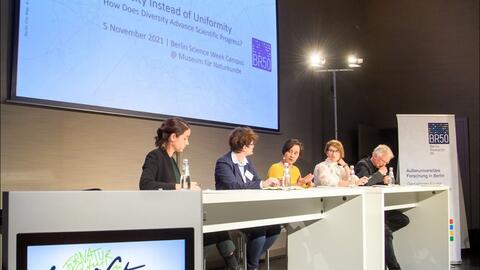
Diversity Instead of Uniformity - How Does Diversity Advance Scientific Progress? | Public Discussion at the Berlin Science Week Campus @ Museum für Naturkunde Berlin | 5 November 2021
Diversity management, gender equality and internationalization have become guiding principles for almost all scientific institutions, especially in Berlin. At the beginning of the year, DFG President Katja Becker stressed that diversity and excellence are inseparable concepts for her. However, it remains true that the further up the career ladder you go, the more uniform the people who reach these positions tend to be. At the same time, many scientists have problems establishing themselves in Germany and face problems with the language, bureaucracy and other personal challenges. Unfortunately, it is also evident that people in the scientific environment are not spared from experiences of discrimination and prejudice.
BLUMEN! – Die Wissenschaftsshow
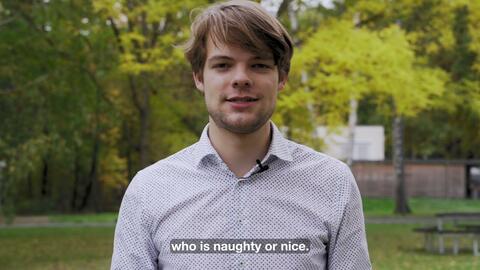
Nun sprechen die Blumen... Drei Berliner Institute hatten eine Woche Zeit, ungewöhnliche Clips zu produzieren, um für ihre Wissenschaft zu begeistern. Brilliante Wissenschaftler*innen des Max-Delbrück-Zentrums für Molekulare Medizn (https://www.mdc-berlin.de/de), des Instituts für Kristallzüchtung (https://www.ikz-berlin.de/) und des Instituts für Gewässerökologie und Binnenfischerei (https://www.igb-berlin.de/) zeigen, wieso ihr Forschungsgebiet das aufregendste der Welt ist. Sie mussten nicht nur unseren Host Friedrich #Liechtenstein überzeugen: Das Online- und das Live-Publikum bewerteten die Clips. Das Gewinner-Video vom #mdcBerlin wird einen Monat lang auf der #Science-Fassade des Paul-Drude-Instituts laufen. Hier seht ihr es schon vorab!
Deep Dive – Being a Postdoc at the MDC Berlin
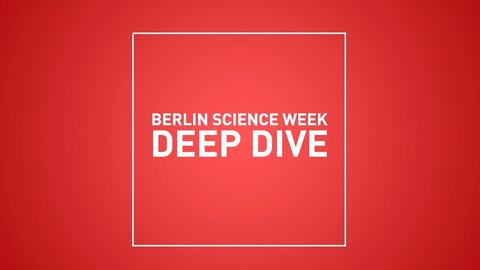
Who is considered a postdoc? What does it mean to become and be a postdoc? Why do postdocs pursue careers in natural sciences? What does the daily life of a postdoc entail? In this #BerlinScienceWeek 2021 "Deep Dive", #mdcBerlin science manager Anne Merks and #FMP postdoctoral research fellow Jeremy Morgan explain their work, motivations, career opportunities and more. Jump right in!
Einblicke in das neue Einstein-Zentrum 3R
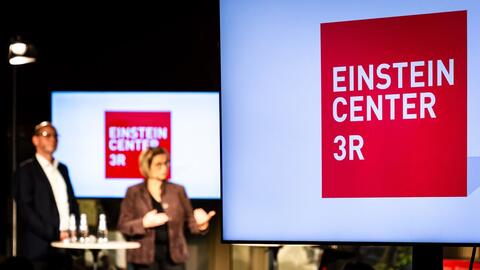
Forschung an Mini-Organen, menschlichem Gewebe oder Multi-Organ-Chips – moderne Technologien versprechen eine Zukunft ohne #Tierversuche. Was ist der aktuelle Stand der #Forschung? Wie funktionieren diese Methoden und wo liegen ihre Grenzen?
Eine moderierte Podiumsdiskussion mit kurzen Filmbeiträgen aus den Laboren widmet sich diesen und weiteren Fragen. Erfahren Sie, wie Berlins #Wissenschaft daran arbeitet, die Forschung im Sinne von #3R – Replace, Reduce, Refine von Tierversuchen – zu verändern und zu verbessern. Auf dem Podium erklären Wissenschaftlerinnen und Wissenschaftlern des neuen Einstein-Zentrum 3R ihre Forschung. Ziel des Zentrums ist es, zur Entwicklung neuer Therapien für menschliche Erkrankungen beizutragen, indem die Übertragbarkeit von Laborerkenntnissen auf den #Patienten verbessert und gleichzeitig der #Tierschutz gestärkt wird.
Cardiovascular Health in the Time of COVID19
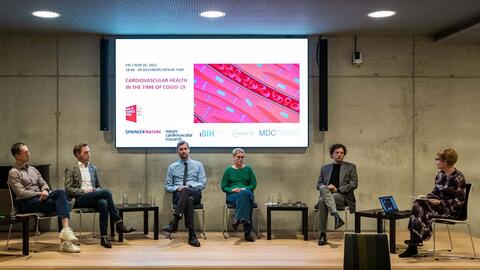
#COVID19, caused by a severe acute respiratory syndrome coronavirus 2 (#SARSCoV2), has become a global #pandemic that has affected the lives of the entire human population. The panel, composed of Berlin-based experts in basic, translational and clinical science focused on cardiovascular disease and immunology, discusses three key aspects:
How are pre-existing #cardiovascular conditions associated with worse outcomes and increased risk of death in patients with COVID-19? How can COVID-19 itself induce cardiovascular disease, such as venous thromboembolism, high blood pressure, acute coronary syndrome, myocardial injury, and arrhythmia? And how can we minimize all these risks by #vaccination?
WHS WS 01 - Thinking Ahead: Prototype Vaccines
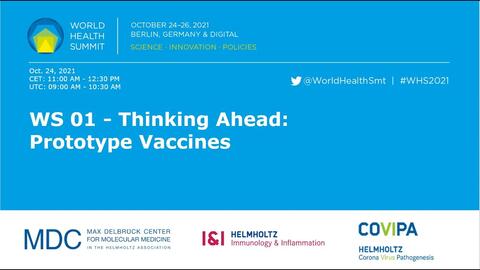
Vaccines are the major cornerstone to control pandemics. This has been demonstrated in the past for instance by the eradication of poxvirus or the global control of poliomyelitis. Given the long history of vaccines, established pipelines for their development and production have been developed. The still ongoing COVID-19 pandemic has enriched this pipeline and although SARS-CoV-2 vaccines have been developed and approved within less than a year, this major achievement built on decades of basic research. Equally important was the massive financial support, accelerated administrative procedures and rapid increase in production capacity. Yet, important challenges remain such as the global distribution of vaccines and insufficient vaccination rates in countries where these vaccines are available.
Retrospect
2023
2021
2020
2019
